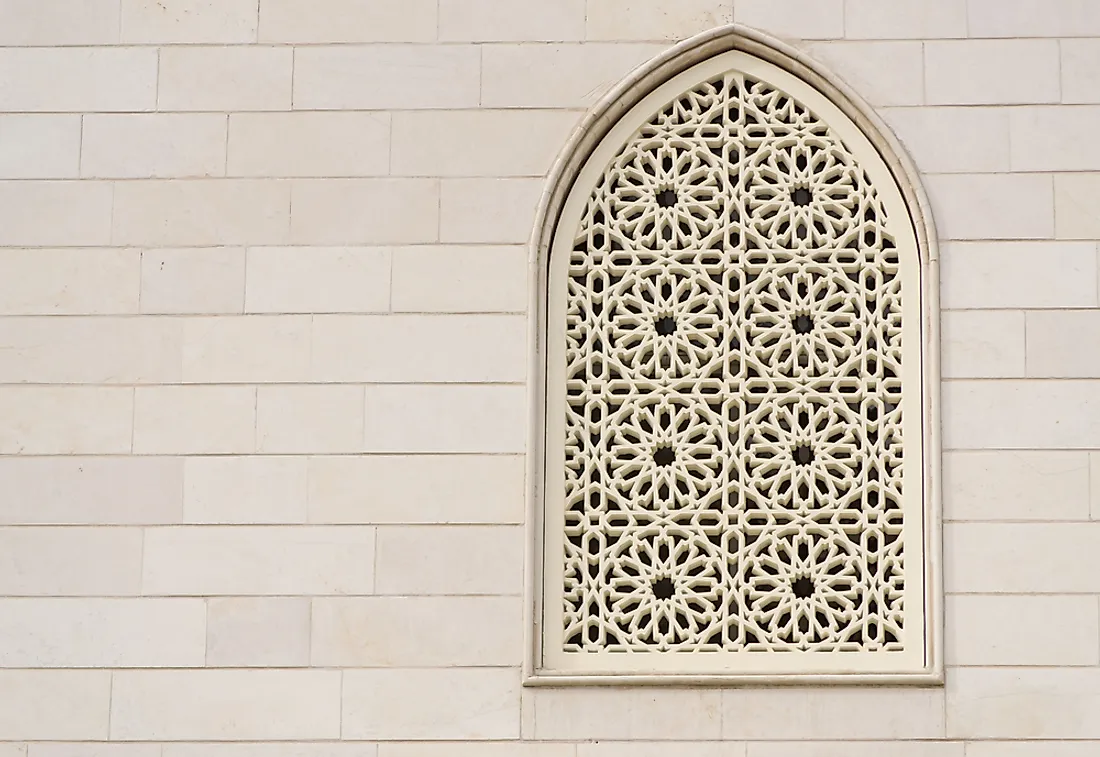The Culture Of Kuwait

Kuwait is a country located in Western Asia, on the northeast part of the Arabian Peninsula. Officially, the State of Kuwait has a population of approximately 4.2 million inhabitants, of which only 1.3 million are Kuwaitis, while the remainder are migrant workers from other countries. Ethnic Kuwaitis and other Arab populations account for 30.4% and 27.4% of Kuwait’s population, respectively. Various Asian populations represent a combined 40.3%, and the country also has small populations from Africa, the Americas, and Australia. Islam is the official and predominant religion in Kuwait, as it is practiced by 74.6% of the population. Christianity is the second most common religion, and is practiced by 18.2% of the population.
Kuwaiti Cuisine
Kuwaiti cuisine has been influenced by Arabian, Mediterranean, Persian, and Indian cuisines. Seafood, especially fish, rice, and bread are the staples of Kuwaiti cuisine. For example, the traditional Kuwaiti flatbread, called khubz, is baked in a special oven and topped with sesame seeds and usually served with fish sauce. Other popular dishes of Kuwaiti cuisine include biryani (seasoned rice cooked with lamb or chicken), maglooba (rice cooked with potatoes, eggplant, and meat), harees (wheat and meat cooked together, mashed, and topped with cinnamon sugar), machboos (a dish of fish, mutton or chicken, served with rice cooked in the same spiced broth), and gabout (steamed flour dumplings stuffed with cooked meat or vegetables and served with meat stew). Arabic coffee, karak tea, dried lime tea, and sharbat are examples of some of the popular beverages in Kuwait.
Literature and the Arts
Written literature in Kuwait developed relatively recently. Historically, oral literary traditions prevailed, as folk tales and legends were passed down orally from one generation to the next. However, during the 20th century, several eminent writers emerged in Kuwait, writing novels, poetry, and history. For example, Ismail Fahd Ismail, Taleb al-Refai, and Laila al-Othman are some of the noted contemporary Kuwaiti writers.
Calligraphy has a long history in Kuwait. In fact, Arabic calligraphy is one of the acceptable forms of artistic expression in Kuwait, and is regarded as sacred in Islam.
Kuwait has a thriving art scene and houses over 30 art galleries. Mojeb al-Dousari, a Kuwaiti artist, is regarded as the founder of portrait art in the Gulf region. Art festivals like the Al Qurain Cultural Festival are held in the country to encourage Kuwaiti artists.
Perforing Arts in Kuwait
Kuwait is the birthplace of many musical genres that are currently popular in the Middle East. The country’s music has influenced the music culture of many of the neighboring nations. The maritime influence has also shaped the music of the nation. For example, Fijiri (vocal music sung by the pearl divers) and swat (a form of urban music played using a drum, a plucked lute, and in later years, also a violin) are are some music genres that originated in Kuwait. Various music festivals are held in the country, and musical education is provided by many academic institutions in Kuwait. Today, contemporary Kuwaiti music is popular throughout the Arab world.
Kuwait is the only country in the Persian Gulf with a domestic tradition of theater. The country’s cultural life is portrayed by its theater, and Abdulhussain Abdulredha is one of the prominent actors of Kuwaiti theater. The Higher Institute of Theatrical Arts in Kuwait provides higher degrees in theatrical arts, and the country has become the center of the television, comedy and drama scene within the Persian Gulf. In fact, Kuwait has has been nicknamed the "Hollywood of the Gulf." Soap operas originating from Kuwait have high viewership across the Persian Gulf region.
Sport in Kuwait
Football (soccer) is the most popular game in Kuwait. There are many football clubs throughout the country, including both men’s and women’s national football teams. Another popular sport is basketball, and Kuwait's national basketball teams have participated in several international competitions. Handball, hockey, and cricket are other examples of the sports played in Kuwait.
Life in Kuwaiti Society
Laws and customs in Kuwait define and enforce a division of labor by gender. However, women in Kuwait participated in the workforce more than any other other country in the Gulf Cooperation Council (GCC). Females are often employed in academic, social service or clerical positions, while business leaders, managers, and top-level administrators are male. Nevertheless, the rights and freedoms of women in Kuwait are improving. Women gained the right to vote in 2005, and younger Kuwaiti women are more educated and more prominent in the country's commercial and social circles than the previous generations.
Marriages are mostly arranged and women usually need their father’s permission to marry. Women cannot marry non-Muslim men, while men are allowed this freedom. The prevailing religious laws also allow men to have up to four wives at one time.
Families are usually extended and residence is patrilocal in nature (living with the husband’s family). Inheritance is based on Islamic law, which allows both genders to inherit the property of their parents.
Mothers and other female members of the household are assigned the task of childcare. Education is free for children between ages six and fourteen, but schools are usually segregated by gender.
Honor, respect, and reputation are considered to be basic foundations of Kuwaiti. Interactions between members of the opposite sex are highly restricted, and public displays of affection are frowned upon. However, members of the same sex can interact. Men often shake hands with each other upon greeting and before departure.











